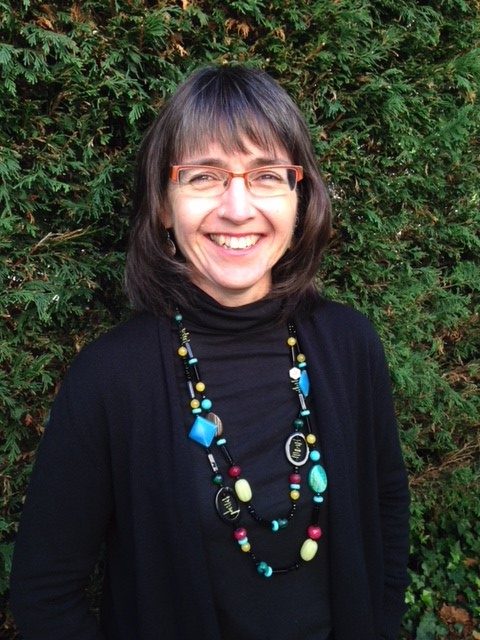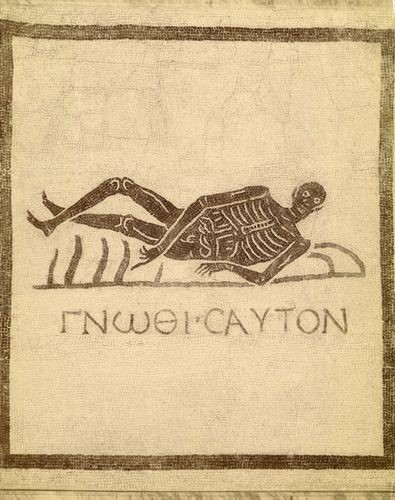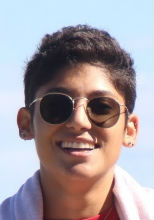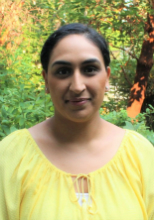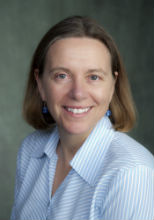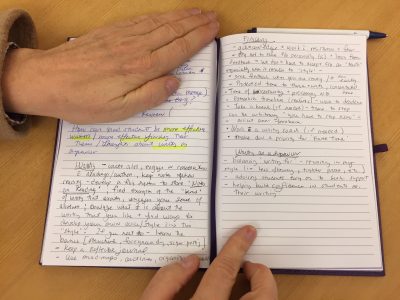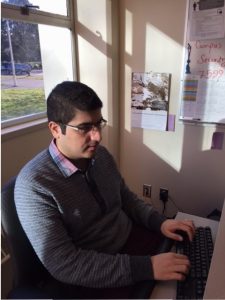By Madeline Walker
“Insisting on control, having a plan or outline, and always sticking to it is a prophylactic against organic growth, development, change. But it is also a prophylactic against the experience of chaos and disorientation which are very frightening.” (Peter Elbow, Writing without Teachers, p. 35).
As spring explodes into summer in the Northern Hemisphere, my thoughts are the upcoming year. Starting July 1, I will be taking a year’s leave from my job at the Centre for Academic Communication.
Since I started this blog in December 2016, we’ve published 44 posts – many by graduate writers graciously sharing their stories. In my first blog post, Writing Undressed, I wrote about the messiness of writing, an uneven process that occurs in fits and starts and not according to some smooth trajectory. In this post, I would like to return to the mysterious and magical process of writing, a topic that continues to fascinate me.
A friend who self-published a novel asked me to write a review, and I was happy to agree because I enjoyed his story. But getting traction on writing the review has been difficult. First I re-read the book, taking notes. The first read was for pure pleasure; the second time was purposeful—I was looking for key ideas and quotations to use in the review. I also looked carefully at the structure of the novel, which on my first read simply blended into the background.
Once I had my notes, the real difficulties began. How can I capture all of the different ideas I have? Where to start? Do I need to summarize the story first? But what about an engaging opening? Am I reading it correctly? Am I making too much of this idea? Self-doubt flooded me and I felt like a novice writer. I’ve written several reviews before that were published, but somehow previous experience didn’t seem to give me a leg up. I felt mired in chaos.
And then I realized: This happens every time. Lately, my self-doubt is laced with the added tang of ageism: “you’re getting old and your mind is deteriorating, you’re losing vocabulary, you can’t do this anymore.” Different spice, same message, just the familiar devil of doubt sitting on my shoulder. Recognizing the pattern means I know what to do. Ignore the voice as I muddle through. And muddle through I always do! I spent several evenings writing fragments and re-starting the review, mulling over it when I wasn’t actually writing.
“The turning point in the whole cycle of growing is the emergence of a focus or a theme. It is also the most mysterious and difficult kind of cognitive event to analyze. It is the moment when what was chaos is now seen as having center of gravity. There is a shape where a moment ago there was none.” (Peter Elbow, Writing Without Teachers, p. 35)
And then one morning as I rode my bike to work, it started to happen, the center of gravity for that review started to emerge. I need to trust that this always happens, eventually, if I muddle and mull long enough. It was as if my neurons were firing a mile a minute—ideas flowed and my center of gravity emerged like a hot sun around which my planetary thoughts revolved. I knew the key idea that I was to follow in the review and I had to stop twice, pulling my bike over to the side of Lochside trail to make notes so I didn’t forget what it was I wanted to say.
Peter Elbow’s wonderful metaphor for center of gravity suggests a place of equilibrium, where the ideas are pulled into a central mass of significance. And this happened for me when I recognized the argument I wanted to make about the book. Emergence of an argument signals the emergence of a center of gravity because for me, argument is the structuring principle of most of my writing. Once that starts to take shape, it gets easier.
I don’t make plans or outlines. Well sometimes I do, but they fail—they are provisional—I don’t stick to them. I’ve realized that I must honour the scary disorienting feeling of being groundless when I begin the process of writing. Tons of notes and scr ibbles and frustration and trying to find a thread. I need to trust that the mulling and stewing and casting about for words and ideas is a necessary messy and chaotic stage I go through. When I try to force a solution or structure too soon, the process becomes distorted and prolonged.
ibbles and frustration and trying to find a thread. I need to trust that the mulling and stewing and casting about for words and ideas is a necessary messy and chaotic stage I go through. When I try to force a solution or structure too soon, the process becomes distorted and prolonged.
One dictum about writing is “clear thinking = clear writing.” I hazard a rewrite of that simplistic equation: “chaotic thinking and messy writing lead eventually to clear thinking and writing.” There really are no shortcuts. One stage leads to the next: the emergence of an argument or significant idea or center of gravity or shape. And from that center of gravity the work will build itself. At least that has been my experience.
Please enjoy the blog as it is–we will not be adding content during my absence. However, I will check my email at mrwalker@uvic.ca if you wish to contact me with ideas for the blog’s future directions.
Take good care and enjoy the work and play of writing.
Madeline
